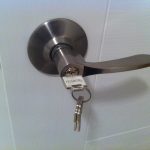Make sure you completely understand the mortgage type you are applying for
By: Hitesh Khan/
Knowing your mortgage type entails understanding whether the rate will be fixed or adjustable.
Table of Contents
In a fixed rate mortgage, the principal and interest portion of your payment is guaranteed to remain the same for the life of the loan. Keep in mind, however, that any increase in homeowners insurance will cause your monthly payment to increase if those items are escrowed and included as part of your mortgage payment.
An adjustable rate mortgage (“ARM”) is any mortgage where the interest rate can change. Typically, the rate will be fixed for a certain period of time and will then adjust periodically. A common type of ARM is a two year ARM. For this type of product, the rate will remain fixed for two years and will then adjust annually thereafter. This is just one example of the many types of adjustable rate mortgages that are available.
To know your mortgage type, you will need to provide the lender or broker with certain financial and employment information and documentation during the application process. Typically, you will need to provide information about your income, employment, assets and liabilities. To support this information you will likely have to provide pay stubs, bank statements, tax returns, investment reports, divorce decrees, and any other documentation to support your information. If you have all of this information available when you submit your application, the process will move ahead much quicker.
https://www.icompareloan.com/resources/busting-myths-cpf-grants-buying-hdb/
Most lenders offer a rate lock option. If you’re working with a broker, they can facilitate the rate lock with the lender. A broker cannot issue a rate lock directly because they are not making the loan. Do not accept any verbal assurance that your rate is locked and do not accept any excuse for not getting it in writing. Without a written rate lock, you have little recourse if your rate is different when you arrive at the closing. In a rising interest rate environment, the change in rate between the time you submitted your application and the time you arrive at your closing can be substantial.
Homeowners who are worried that the interest rates for their home loans are rising, are moving towards fixed rate loans. Even though the cost for the current floating rate loans are still lower, homeowners seem to prefer the security fixed rate loans provide for the near future.
In understanding your mortgage type, you have to remember that since last year, banks have raised interest rates for both fixed and floating home loan packages by 10 – 30 basis points (bps). Some banks have already upped their mortgage rate to over 2 per cent, to keep pace with the increasing interest rates.
Homeowners who are worried about the other types of home loans with interest rates that are exceptionally volatile, might opt for a fixed rate loans. Fixed rate loans may give homeowners thousands of dollars (perhaps even a five-figure sum or more) each year. Homeowners could potentially also enjoy a two-three times difference in their total interest repayment if they opted for one.
Some homeowners may however miss out on such potential savings because they are overwhelmed by the banking process. Others might be put off by technical jargon like SIBOR, FHR, Board Rates. Such homeowners may hesitate and wish for someone to just hand them the cheapest home loan package across 16 banks.
Some reasons why homeowners may hesitate
- Unsure of the loan amounts they are eligible for and how to calculate them.
- Unsure as to when or why they should refinance.
- Unsure about how the new banking regulations is affecting them.
- Unsure of the loan tenure they should go for.
- Unsure about the amount of CPF they should use for the purchase of their homes.
And there is good reason why homeowners are unsure and unfamiliar on how to get the best deal interest rates for their home loans. Most don’t buy homes as often as you buy other necessities (like food and clothes). But actually, there is no reason why you should contribute to the banks’ profits when you can keep the difference in interest rates.
All such homeowners need to do is, look for a mortgage specialist. The mortgage specialists will give them the advice that they need at zero cost to the homeowners. In case you are wondering why the service by the mortgage broker is free to the borrower – it is because the lenders will pay the mortgage broker a distribution fee upon successful disbursement of loan.
https://www.icompareloan.com/resources/mortgage-broker-singapore-best-rate/

Free
The services of a mortgage broker are free to the borrower because the bank pays a referral fee upon successful loan disbursement.
Unbiased
Mortgage brokers offer unbiased recommendations since they are not tied to any one bank.
Well-informed and professional
Mortgage brokers are well-informed of all the loan packages, the different interest rates in the market and their accompanying features, compared to most borrowers, because it is their job.
Besides matching you with the right loan with the best interest rates, they can warn you about caveats and conditions of the loan contract, which you may not be aware of if you are a lay person .
In addition, loan contracts have financial jargon that first-time borrower may be baffled with. A mortgage broker will be able to explain these to you in plain English.
Most will even assist you with the paperwork in the application process.
In short they take most of the hassle out of the loan process – from search to application.
After reading this article, if you are persuaded into trying out a mortgage broker, you can try the friendly and helpful ones at www.iCompareLoan.com. The brokers here use home loan reports, generated from Singapore’s most advanced loan analysis system (exclusive to iCompareLoan), to help you find a package with the best fit. Drop a note here.
For advice on a new home loan.
For refinancing advice.






